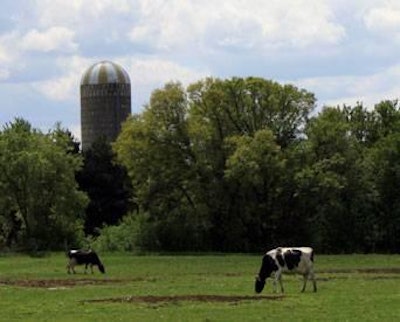
The organic agriculture industry is growing at a record pace both domestically and globally, according to new figures released by the U.S. Department of Agriculture (USDA) on March 20. A number of new and expanded efforts from the USDA, supported by the 2014 U.S. Farm Bill, will connect organic farmers and businesses with the resources they need to ensure continued growth.
"Consumer demand for organic products has grown exponentially over the past decade. With retail sales valued at $35 billion last year, the organic industry represents a tremendous economic opportunity for farmers, ranchers and rural communities," said Agriculture Secretary Tom Vilsack. "New support in the 2014 Farm Bill will enhance USDA's efforts to help producers and small businesses tap into this market and support organic agriculture as it continues to grow and thrive."
According to the USDA, there are over 25,000 certified organic operations in more than 120 different countries around the world. The industry today encompasses a record-breaking 18,513 certified organic farms and businesses in the U.S. alone, representing a 245 percent increase since 2002.
The recently-signed 2014 U.S. Farm Bill, the Agricultural Act of 2014, includes provisions to support the organic community, including:
- $20 million annually for dedicated organic research, agricultural extension programs and education
- $5 million to fund data collection on organic agriculture that will give policymakers, organic farmers and organic businesses data needed to make sound policy, business and marketing decisions
- Expanded options for organic crop insurance to protect farmers
- Expanded exemptions for organic producers who are paying into commodity "check off" programs, and authority for the USDA to consider an application for the organic sector to establish its own check off
- Improved enforcement authority for the National Organic Program to conduct investigations
- $5 million for a technology upgrade of the National Organic Program to provide up-to-date information about certified organic operations across the supply chain
- $11.5 million annually for certification cost-share assistance, which reimburses the costs of annual certification for organic farmers and livestock producers by covering 75 percent of certification costs, up to $750 per year
The USDA is helping organic stakeholders access programs that support conservation, provide access to loans and grants, fund organic research and education, and mitigate pest emergencies. Information about USDA resources and support for the organic sector is available on the USDA Organics Resource page.














